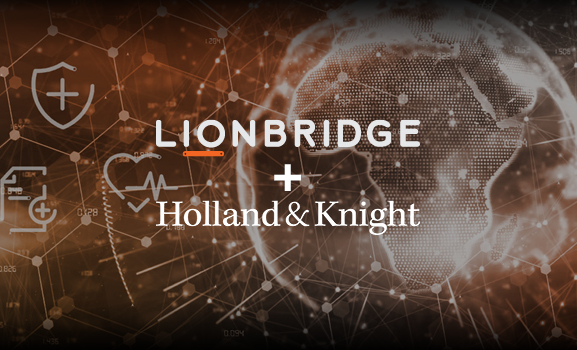- WHAT WE DO
Additional Services

- Industries

Case Study: Multilingual Retail Marketing
New AI Content Creation Solutions for a Sports and Apparel Giant

- RESOURCES

- WHO WE ARE

What We Do Home
Generative AI
- AI Translation Services
- Content Remix
AI Training
- Aurora AI Studio™
Machine Translation
- MT Tracker
Instant Interpreter
Smart Onboarding
Translation Service Models
Content Services
- Technical Writing
- Training & eLearning
- Financial Reports
- Digital Marketing
- SEO & Content Optimization
Translation Services
- Video Localization
- Software Localization
- Website Localization
- Translation for Regulated Companies
- Interpretation
- Instant Interpreter
- Live Events
- Language Quality Services
Testing Services
- Functional QA & Testing
- Compatibility Testing
- Interoperability Testing
- Performance Testing
- Accessibility Testing
- UX/CX Testing
Industries Home
Life Sciences Translations
- Pharmaceutical Translations
- Clinical Trial Translations
- Regulatory Translations
- Post-Approval Translations
- Corporate Pharma Translations
- Medical Device Language Services
- Validation and Clinical
- Regulatory Translations
- Post-Authorization Translations
- Corporate Medical Device Translations
- COA Translation Services
Banking & Finance
Retail
Luxury
E-Commerce
Games
Automotive
Consumer Packaged Goods
Technology
Industrial Manufacturing
Legal Services
Travel & Hospitality
Insights
- Blog Posts
- Case Studies
- Whitepapers
- Solution Briefs
- Infographics
- eBooks
- Videos
Webinars
Lionbridge Knowledge Hubs
- Positive Patient Outcomes
- Modern Clinical Trial Solutions
- Patient Engagement
- AI Thought Leadership
SELECT LANGUAGE:
Tempted To Retire Machine Translation? Not So Fast.
Machine Translation tools continue to benefit enterprises that effectively incorporate them into their AI-driven translation workflow even as generative AI thrives.
The role of Machine Translation is unequivocally changing. Generative AI (GenAI) / Large Language Models (LLMs) will likely replace this legacy technology. The signs are clear:
—LLMs are challenging MT engines with their superior contextual understanding.
—Generative AI solutions are proliferating.
Despite these developments, LLMs are not the new MT — at least not yet. GenAI cannot match the translation speed and affordability of top Neural Machine Translation (NMT) engines.
Given that LLMs are currently an unsuitable substitute for MT, how can you best leverage all available technologies to optimize your translation workflow and translate more content faster — as cost-effectively as possible — to enhance global outreach?
You may use the best of both technologies strategically, leveraging MT tools for a new LLM world.
—Use MT for initial translations at the beginning of the process.
—Use LLMs for post-editing and quality assurance tasks to enhance overall quality.
Combining MT and LLM technologies with human oversight enables enterprises to achieve desired translation results.
The Benefits of Machine Translation as Its Role Evolves
Incorporating MT in your AI toolset and implementing it as the first translation pass enhances efficiency, resulting in the following benefits.
Put Machine Translation to Work for You in the Era of Generative AI
Translate high volumes of content by leveraging the best MT engine and approach for a given language pair.
Enhance customer satisfaction by scaling and increasing the flexibility of your support teams across time zones and languages.
Increase your global teams’ productivity by removing communication barriers.
Learn more about Lionbridge’s automated solution, Smart MT™, to Localize everything™.
How AI-Powered MT Supports Major Verticals
Machine Translation can help overcome business challenges in any industry. See how our MT and AI solutions support legal, life sciences, and e-commerce customers.
Dig Deeper Into Content About Automated Translation
Meet Our Machine Translation and Generative AI Experts
With deep AI expertise, you can feel confident about Lionbridge’s Machine Translation services and generative AI language services.
Frequently Asked Questions
Have questions about how Machine Translation fits into language services along with generative AI? Here are some answers.
When should I consider using Machine Translation?
MT is a valuable efficiency tool in any translation workflow, reducing translation costs, speeding up translation turnaround, and increasing content velocity. It’s beneficial for large volumes of content or when quick turnarounds are essential.
Companies achieve their content goals by blending MT with generative AI and the expertise of human translators.
What are some particular use cases for Machine Translation?
MT is ideal for quickly translating high volumes of low-visibility content. Examples include internal communications, service desk interactions, and user-generated content (like reviews).
Is Machine Translation secure?
Free MT offerings like Google Translate or Bing Translate are unsafe for sensitive data, as they may use your material to train their engines. Your data is the price you pay to use these offerings.
When working with internal business, legal, or private documents, consider using paid solutions that provide more privacy and security.
Visit the Lionbridge Trust Center to learn more about our commitment to customer security, privacy, and quality through comprehensive measures.
How can I best utilize translation technology like Machine Translation?
As Machine Translation and AI experts, Lionbridge provides top-notch AI-powered language services to enable you to leverage MT along with other GenAI-based technology solutions.
We help you select the best MT engine for your content, enhancing output quality with our Smart MT offering, providing MT training when needed, and establishing an infrastructure to meet varying quality levels.


